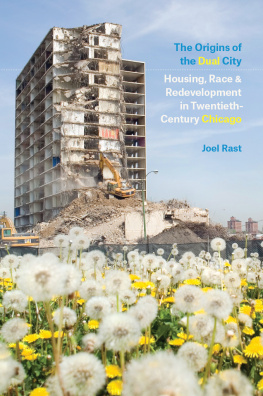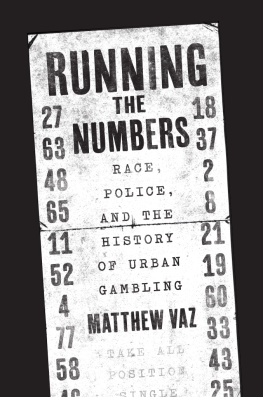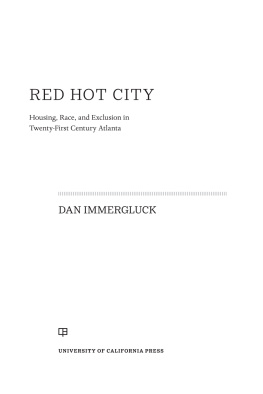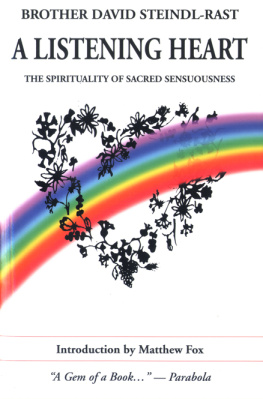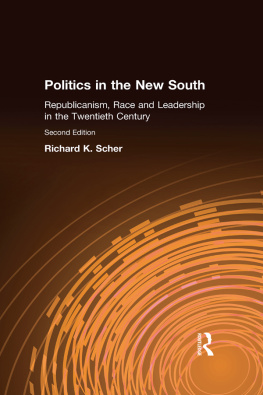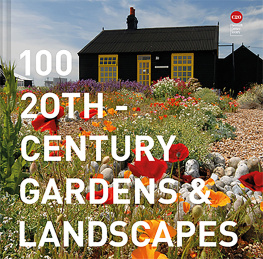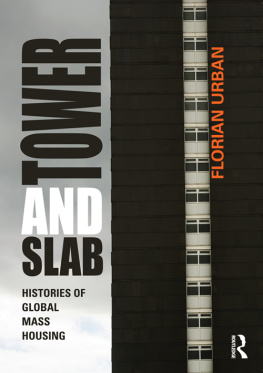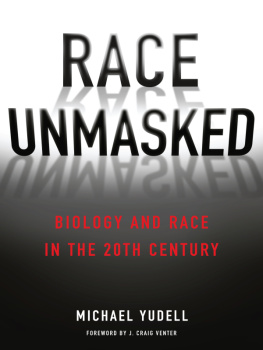The Origins of the Dual City
The Origins of the Dual City
Housing, Race, and Redevelopment in Twentieth-Century Chicago
JOEL RAST
The University of Chicago Press
CHICAGO & LONDON
The University of Chicago Press, Chicago 60637
The University of Chicago Press, Ltd., London
2019 by The University of Chicago
All rights reserved. No part of this book may be used or reproduced in any manner whatsoever without written permission, except in the case of brief quotations in critical articles and reviews. For more information, contact the University of Chicago Press, 1427 E. 60th St., Chicago, IL 60637.
Published 2019
Printed in the United States of America
28 27 26 25 24 23 22 21 20 19 1 2 3 4 5
ISBN -13: 978-0-226-66144-5 (cloth)
ISBN -13: 978-0-226-66158-2 (paper)
ISBN -13: 978-0-226-66161-2 (e-book)
DOI : https://doi.org/10.7208/chicago/9780226661612.001.0001
Library of Congress Cataloging-in-Publication Data
Names: Rast, Joel, 1956 author.
Title: The origins of the dual city : housing, race, and redevelopment in twentieth-century Chicago / Joel Rast.
Description: Chicago ; London : The University of Chicago Press, 2019. | Includes bibliographical references and index.
Identifiers: LCCN 2019017192 | ISBN 9780226661445 (cloth : alk. paper) | ISBN 9780226661582 (pbk. : alk. paper) | ISBN 9780226661612 (e-book)
Subjects: LCSH : Housing policyIllinoisChicago. | Urban policyIllinoisChicago. | Chicago (Ill.)Social policy. | Urban renewalIllinoisChicagoHistory 20th century. | SlumsIllinoisChicagoHistory20th century. | Blacks SegregationIllinoisChicago. | Discrimination in housingIllinoisChicago. | Chicago (Ill.)Politics and government20th century.
Classification: LCC HD 7304. C 4 R 37 2019 | DDC 307.1/4160977311dc23
LC record available at https://lccn.loc.gov/2019017192

This paper meets the requirements of ANSI/NISO Z 39.481992 (Permanence of Paper).
For Cliona, Nina, and Yan
Contents
Like many historical studies that take a long time to complete, this book started out as something different from what it ultimately became. My original interest was to explore in some depth the antecedent conditions that gave rise to Chicagos much studied business-government alliance of the postwar era. While much is known about the efforts and activities of this alliance, less understood is the process through which the transition from the citys earlier governing arrangements to those of the postwar period was negotiated. After immersing myself for some time in various archival collections, I became increasingly consumed with one aspect of the new postwar power structurethe citys evolving approach to problems of slums and blight. With this new focus of attention, I found myself reaching further and further back in time to try to better understand why the citys postwar policy approach took the form it did.
As I began to piece together the threads of a narrative, two things in particular stood out. The first was the sweeping change in the goals of the citys anti-slum initiatives that took place over the course of the twentieth century. For decades, civic and political leaders took the view that slums were incompatible with the good city as they understood it. The aim was to eradicate slum conditions wherever they existedan objective viewed as both possible and necessary for the citys survival. By the latter part of the century, however, this goal had been largely superseded by a radically different orientation that focused not on eliminating slums but on managing such areas and mitigating their most harmful effects while promoting development and gentrification of neighborhoods close to downtown and along the lakefrontwhat I (and others) call the dual city. A key question this book addresses is how and why this change in policy direction occurred.
The second insight was a theoretical one. Various groups, including those who saw the fate of blighted areas as tied to their own economic interests, mobilized around efforts to address slum conditions in twentieth-century Chicago. Yet as I worked through the archival materialsmeeting minutes, correspondence, memos, reports, and the likeI became less and less convinced that conventional rationalist accounts that view behavior as a reflection of material self-interest were sufficient to explain the actions I was documenting. To be sure, actions and interests were closely intertwined, but a focus on interests and historical conditions alone would, it seemed to me, leave the specific form that behavior took significantly underdetermined in many instances. What became increasingly apparent was that motivations and behavior were shaped in key respects not simply by material interest but by the ideas actors held about how to best engage with slum and blighted areas. To understand why actors behaved as they did, I needed to understand what they were thinking and where those ideas came from. Over time, I came to see ideas as representing a big part of the causal story.
I am well aware that my efforts to assign ideas the causal importance I do will be met with a healthy dose of skepticism by many of my more materialist-oriented fellow social scientists. That is as it should be. Departures from conventional thinking should always be carefully probed and scrutinized, lest we become too easily distracted. Still, I am by no means alone in arguing that social scientists have too long neglected the role of ideas in political development. While still a somewhat small group, a growing number of scholars have argued that materialist perspectives must be accompanied by a theory of ideas in order to develop more complete explanations of political behavior. Significant steps in this direction have been taken by such scholars as Peter A. Hall, Mark Blyth, Colin Hay, Robert Lieberman, Alan Jacobs, Daniel Bland, Sheri Berman, Craig Parsons, and Vivien Schmidt. My hope is that with this book I have made a modest contribution to these efforts.
In researching and writing this book over a period of some years, I have accumulated many debts, and I would like to acknowledge and extend my appreciation to a number of people who helped me along the way. Various colleagues and friends read all or portions of the manuscript or otherwise helped inform this project. My thanks to Larry Bennett, Tim Weaver, Clarence Stone, Richard Dilworth, Pierre Clavel, Heywood Sanders, Brad Hunt, Ivan Ascher, Werner Troesken, and Laura Evans. I am also deeply indebted to two anonymous reviewers for the University of Chicago Press, whose careful reading of the manuscript and insightful comments were invaluable to me as I brought the project to a conclusion. At UW-Milwaukee my friend, colleague, and partner-in-crime Marc Levine has been a steady source of inspiration for many years. Our frequent conversations about Milwaukees dual city profoundly shaped my thinking about Chicago.
As I researched this project, a number of archivists and librarians were extremely helpful and generous with their time. Im particularly grateful to Kevin OBrien and Susan Glover at the University of Illinois at Chicago Library of the Health Sciences Special Collections and University Archives Department, and to Eileen Ielmini and Julia Gardner at the University of Chicago Special Collections Research Center. My thanks also to Michael Benami Doyle and Kelly OBrien from the Chicago Central Area Committee, who very generously made the organizations archives available to me and provided me with office space to work through the collectionand to Lou Masotti for making the introduction.
 This paper meets the requirements of ANSI/NISO Z 39.481992 (Permanence of Paper).
This paper meets the requirements of ANSI/NISO Z 39.481992 (Permanence of Paper).
